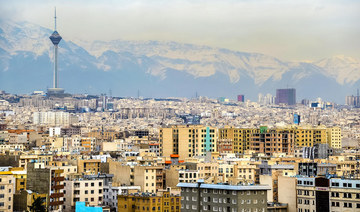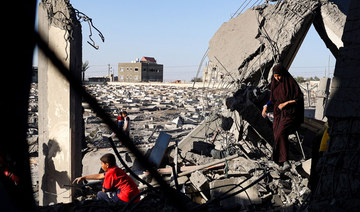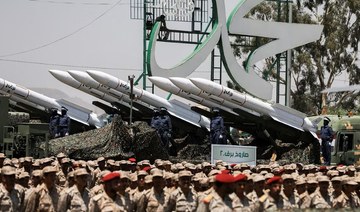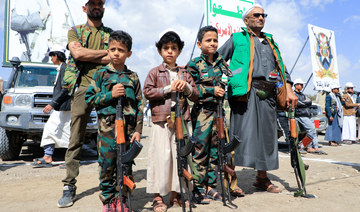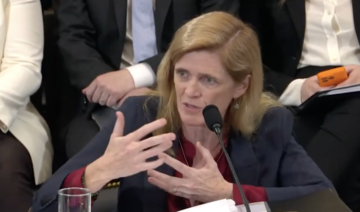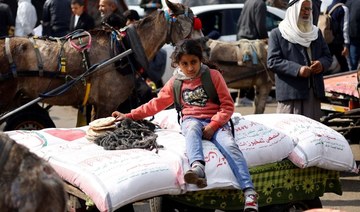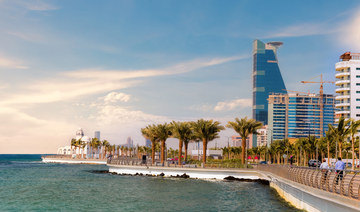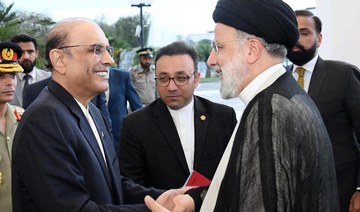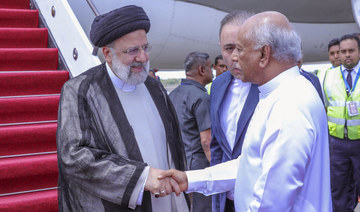ABU DHABI: The United Arab Emirates has started loading fuel rods into the first reactor at its Barakah nuclear plant, operators said Wednesday, two days after regulators gave the green light.
On Monday, the national nuclear regulator announced it has issued the operating license for the first of the plant’s four reactors, opening the way for commercial operations to begin.
The plant, the first in the Arab world, had been due to go online in late 2017 but faced a number of delays that officials attributed to safety and regulatory requirements.
“The Nawah Energy Company has commenced loading the first nuclear fuel assemblies as the initial step in the process toward safely and gradually commencing operations and subsequent generation of clean electricity,” Nawah said in a statement.
The statement added that Unit 1 will begin commercial operations after a “series of tests” leading to the start-up process.
During the process, the unit will be synchronized with the power grid and the first electricity produced.
“Our teams are trained, certified and ready to safely commence the testing and start-up processes for Unit 1,” said Nawah CEO Mark Reddemann.
Abu Dhabi authorities said in January that the plant, on the Gulf coast west of the capital, would start operating within a few months.
The UAE has substantial oil and gas reserves, but with a power-hungry population of 10 million it has made huge investments in developing clean alternatives, including solar energy.
The plant is a regional first — Saudi Arabia, the world’s top oil exporter, has said it plans to build up to 16 nuclear reactors, but the project has yet to materialize.
It is being built by a consortium led by the Korea Electric Power Corporation at a cost of some $24.4 billion.
When fully operational, the four reactors have the capacity to generate 5,600 megawatts of electricity, around 25 percent of the nation’s needs. The other three reactors are almost ready.
UAE loads fuel rods at Arab world’s first nuclear plant
https://arab.news/448t9
UAE loads fuel rods at Arab world’s first nuclear plant
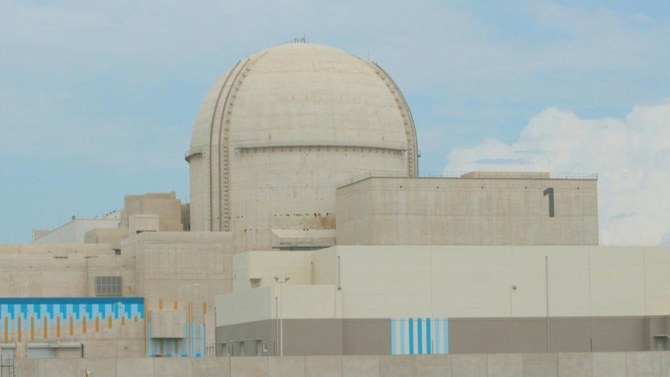
- The plant, the first in the Arab world, had been due to go online in late 2017 but faced a number of delays
- The plant is located on the Gulf coast west of the capital
UAE, Bahrain call for joint work to contain tensions threatening regional stability
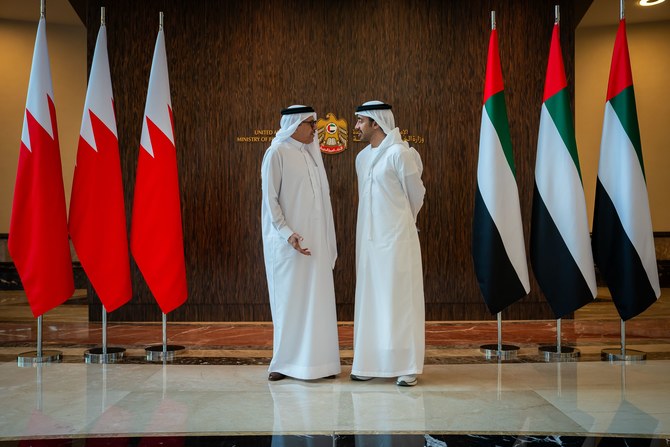
DUBAI: UAE Minister of Foreign Affairs Sheikh Abdullah bin Zayed Al Nahyan received his Bahraini counterpart Dr. Abdul Latif bin Rashid Al Zayani in Abu Dhabi on Wednesday.
Sheikh Abdullah bin Zayed welcomed the Bahraini Foreign Minister, and during the meeting held at the ministry’s headquarters in Abu Dhabi, they discussed the fraternal relations between the two countries, and ways to enhance Emirati-Bahraini cooperation at various levels, WAM reported.
Sheikh Abdullah stressed during the meeting that the UAE and Bahrain are linked by historical relations that are becoming more established, developed and growing, and that they also constitute an important tributary to joint Gulf and Arab work.
He also stressed that the current challenges facing the region require intensifying cooperation, coordination and joint work to contain all tensions that threaten its stability, security and safety of its people.
A blast near a ship off Yemen may mark a new attack by Houthi rebels after a recent lull
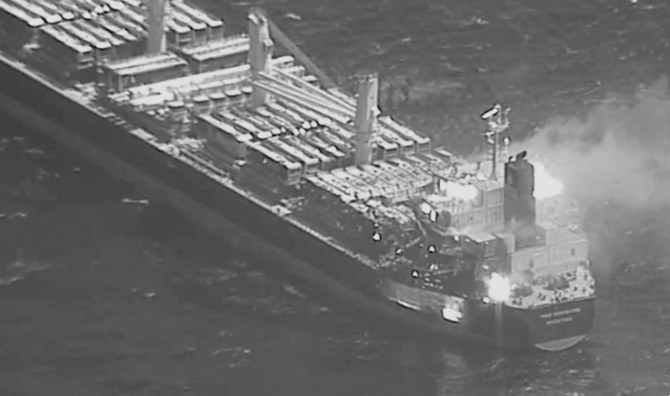
- Houthis have launched more than 50 attacks on shipping, seized one vessel and sank another since November
- The explosion happened some 130 kilometers southeast of Djibouti in the Gulf of Aden
JERUSALEM: A ship near the strategic Bab el-Mandeb Strait saw an explosion in the distance Wednesday, marking what may be a new attack by Yemen’s Houthi rebels through the crucial waterway for international trade.
The explosion, reported by the British military’s United Kingdom Maritime Trade Operations center, comes after a relative lull from the Houthis after they launched dozens of attacks on shipping in the region over Israel’s ongoing war on Hamas in the Gaza Strip.
The Houthis did not immediately claim responsibility for the blast, but suspicion fell on the group as they’ve repeatedly targeted ships in the same area. It typically takes the Houthis several hours before acknowledging their assaults.
The explosion happened some 130 kilometers southeast of Djibouti in the Gulf of Aden.
“The master of a merchant vessel reports an explosion in the water a distance form the vessel,” the UKMTO said. “Veseel and crew reported safe. Authorities are investigating.”
The private maritime security firm Ambrey separately reported the apparent attack.
The Houthis have launched more than 50 attacks on shipping, seized one vessel and sank another since November, according to the US Maritime Administration.
Houthi attacks have dropped in recent weeks as the rebels have been targeted by a US-led airstrike campaign in Yemen and shipping through the Red Sea and Gulf of Aden has declined because of the threat. American officials have speculated that the rebels may be running out of weapons as a result of the US-led campaign against them and firing off drones and missiles steadily in the last months.
The Houthis have said they would continue their attacks until Israel ends its war in Gaza, which has killed more than 34,000 Palestinians there. The war began after Hamas-led militants attacked Israel on Oct. 7, killing 1,200 people and taking some 250 others hostage.
The ships targeted by the Houthis largely have had little or no direct connection to Israel, the US or other nations involved in the war. The rebels have also fired missiles toward Israel, though they have largely fallen short or been intercepted.
The assaults on shipping have raised the profile of the Houthis, who are members of Islam’s minority Shiite Zaydi sect, which ruled Yemen for 1,000 years until 1962. The group seized Sanaa, Yemen’s capital, in late 2014. A Saudi-led coalition has been battling the group in a stalemated conflict since 2015.
Gaza could surpass famine thresholds in six weeks, WFP official says
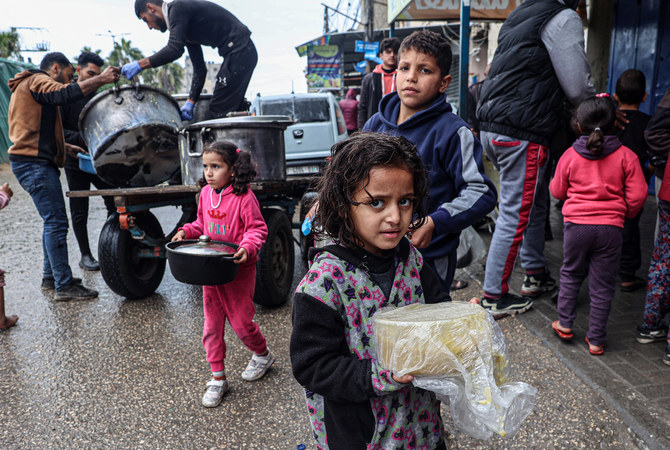
- A UN-backed report published in March said famine was imminent and likely to occur by May in northern Gaza
GENEVA: The Gaza Strip could surpass famine thresholds of food insecurity, malnutrition and mortality in six weeks, an official from the World Food Programme said on Wednesday.
“We are getting closer by the day to a famine situation,” said Gian Caro Cirri, Geneva director of the World Food Programme (WFP).
“There is reasonable evidence that all three famine thresholds — food insecurity, malnutrition and mortality — will be passed in the next six weeks.”
A UN-backed report published in March said that famine was imminent and likely to occur by May in northern Gaza and could spread across the enclave by July. On Tuesday, a US official said the risk of famine in Gaza, especially in the north, was very high.
Cirri was speaking at the launch of a report by the Global Network Against Food Crises, an alliance of humanitarian and development actors including United Nations agencies, the World Bank, the European Union and the United States.
In its report, the network described the 2024 outlook for the Middle East and Africa as extremely concerning due to the Gaza war and restricted humanitarian access, as well as the risk of the conflict spreading elsewhere in the region.
“As for Gaza, the conflict makes it difficult and sometimes impossible to reach affected people,” Cirri said.
“We need to scale up massively our assistance... But under the current conditions, I’m afraid the situation will further deteriorate.”
The United Nations has long complained of obstacles to getting aid in and distributing it throughout Gaza in the six months since Israel began an aerial and ground offensive against Gaza’s ruling Islamist militant group Hamas.
Israel has denied hindering supplies of humanitarian aid and blames aid agencies for inefficiencies in distribution.
Israel’s military campaign has reduced much of the territory of 2.3 million people to a wasteland with a humanitarian disaster unfolding since Oct. 7, when Hamas ignited war by storming into southern Israel.
Cirri said that the only way to steer clear of famine in Gaza was to ensure immediate and daily deliveries of food supplies.
“They’ve been selling off their belongings to buy food. They are most of the time destitute,” he said.
“And clearly some of them are dying of hunger.”
Jordan King, Kuwait Emir stress on importance of reducing regional tensions, avoid escalation
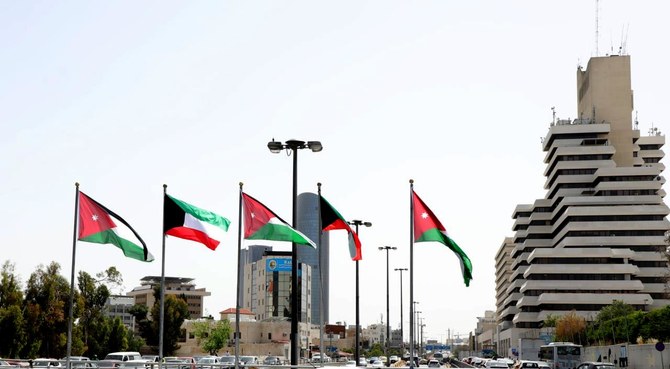
DUBAI: King of Jordan Abdullah II and Emir of Kuwait Sheikh Mishal Al-Ahmad Al-Jaber Al-Sabah stressed on the importance of reducing tensions in the Middle East and avoiding military escalation, according to Petra News Agency.
A joint Jordanian-Kuwaiti statement was issued on Wednesday after the Emir’s two day state visit to the Kingdom.
Both leaders discussed ways to enhance a joint Arab action aimed at confronting emerging regional challenges as well as serving common Arab issues.
The leaders affirmed their support for any steps that ensure the security and stability of the region and stressed the importance of giving priority to dialogue and diplomatic solutions in resolving differences and conflicts.
Their Majesties and Highnesses discussed reaching a just solution to the Palestinian issue and implementing the two-state solution.
The discussions also included talks on investment and tourism, as well as ways to increase trade between Jordan and Kuwait.
Iran cuts Syria presence after strikes blamed on Israel: monitor
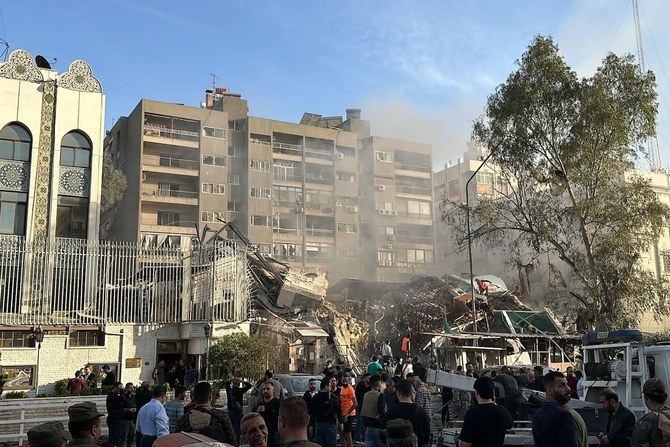
- Iran withdrew its forces from southern Syria, including both Quneitra and Daraa provinces
- Iran has said repeatedly that it has no combat troops in Syria, only officers to provide military advice and training
BEIRUT: Iran has reduced its military footprint in Syria after a succession of strikes blamed on Israel, a source close to Iran-backed militant group Hezbollah and a war monitor said Wednesday.
Iran has provided military support to Syrian government forces through more than a decade of civil war but a series of strikes targeting its commanders in recent months has prompted a reshaping of its presence, the sources said.
“Iran withdrew its forces from southern Syria,” including both Quneitra and Daraa provinces, which abut the Israeli-annexed Golan Heights, the source close to Hezbollah said.
But it still maintains a presence in other parts of the country, the source added.
Recent months have seen a series of strikes on Iranian targets in Syria, widely blamed on Israel, culminating in an April 1 strike that levelled the Iranian consulate in Damascus and killed seven Revolutionary Guards, two of them generals.
That strike prompted Iran to launch a first-ever direct missile and drone attack against Israel on April 13-14 that sent regional tensions spiralling.
But Iran had already begun drawing down its forces after a January 20 strike that killed five Revolutionary Guards in Damascus, including their Syria intelligence chief and his deputy, the source close to Hezbollah said.
Britain-based war monitor, the Syrian Observatory for Human Rights, said Iranian forces had withdrawn from Damascus and southern Syria.
Iran-backed Lebanese and Iraqi fighters had taken their place, Observatory chief Rami Abdel Rahman said.
Iran has said repeatedly that it has no combat troops in Syria, only officers to provide military advice and training.
But the Observatory says as many as 3,000 Iranian military personnel are present in Syria, supported by tens of thousands of Iran-trained fighters from countries including Lebanon, Iraq and Afghanistan.
Abdel Rahman said that many of Iran’s advisers had left Syria over the past six months, although some remained in Aleppo province in the north and in Deir Ezzor province in the east.




